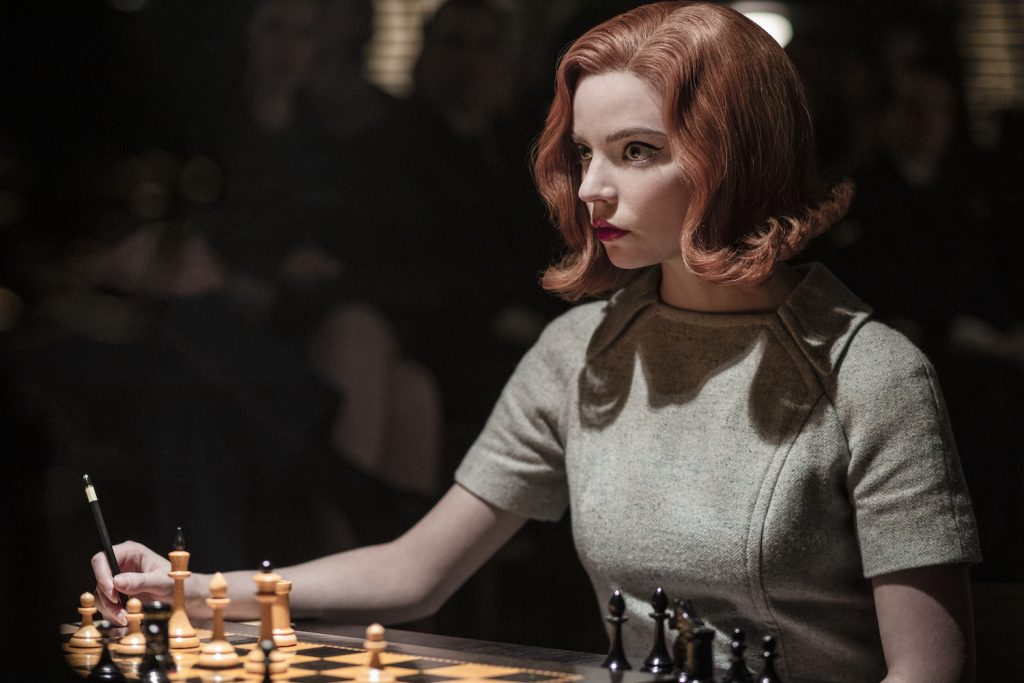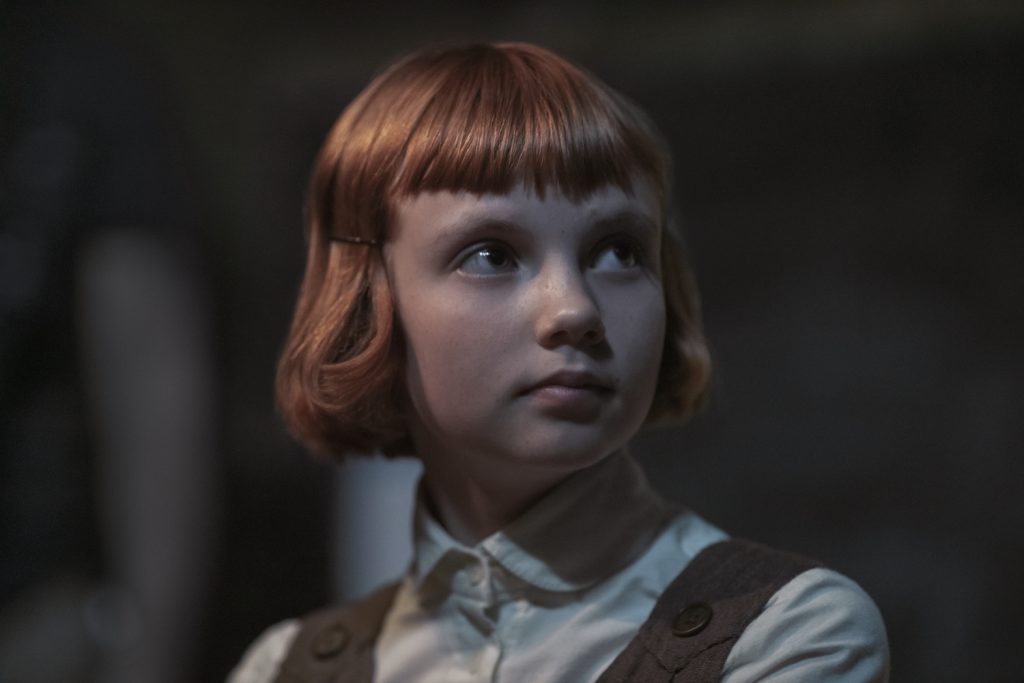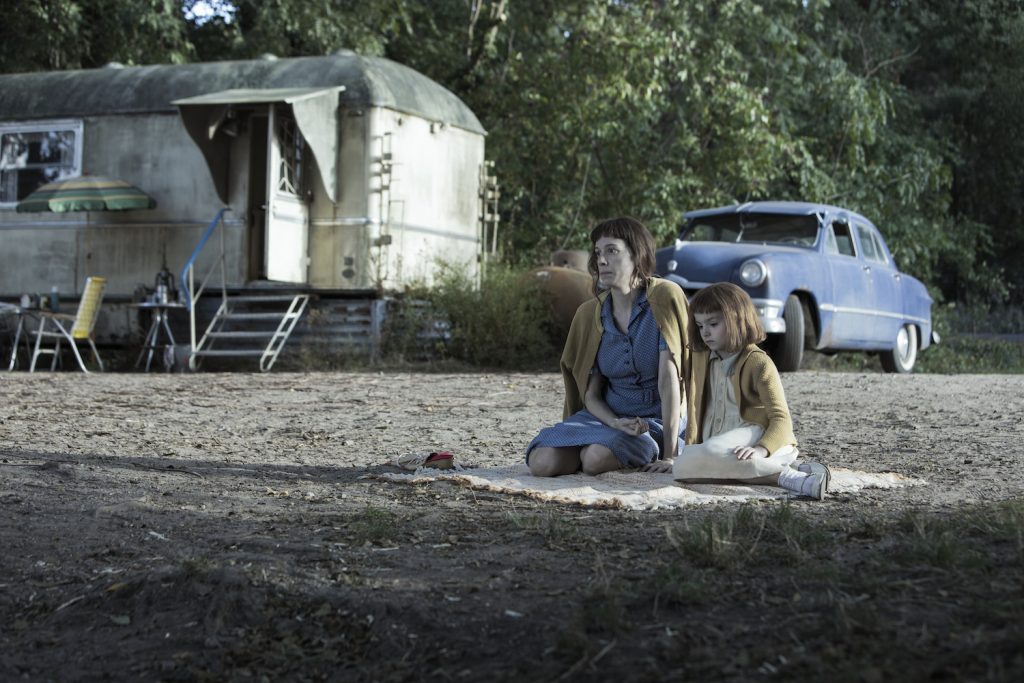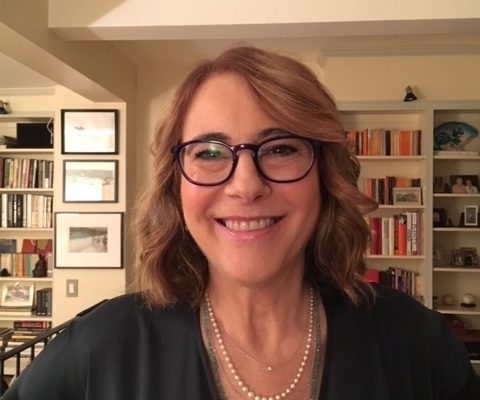Two-time Emmy winner Ellen Lewis has delivered some of the most iconic casting moments in film and television history — from Goodfellas and Forrest Gump to the upcoming Killers of the Flower Moon.
Receiving her 7th nomination for The Queen’s Gambit, the casting director refuses to fall into comfortable patterns. “I try to start each project as if I’ve never done casting before,” says Lewis, “I just start from scratch and try to delve into my imagination.”
A period piece that spans the 1950s and 1960s, the narrative follows Beth Harmon (Anya Taylor-Joy) a gifted orphaned that discovers her joy and talent for playing chess. Thanks to lessons from her orphanage’s janitor (Bill Camp) and support from her adoptive mother (Marielle Heller), Beth Harmon rises to international fame and ultimately challenges the Russian chess masters.
Lewis cast three different actresses to play Harmon, and spoke to Awards Focus about finding the thread between the three, career guidance from David Mamet, and her work with frequent collaborator Martin Scorsese on the upcoming Killers of the Flower Moon.
Awards Focus: When casting for the Queen’s Gambit, what was the most rewarding moment in the casting process for you?
Ellen Lewis: I think the most rewarding part was getting to work with such amazing people, especially working with Scott Frank again, who I had worked with on Godless. Casey Silver had introduced me, he was producing Godless and thought that Scott and I would connect, and we did! I also really enjoy working with Kate Sprance, my longtime associate and casting partner, and also fellow casting director Olivia Scott Webb.
AF: You mentioned Olivia Scott-Webb, who is based in London; was the casting process quite an international one?
Lewis: It turned into an international casting process when they decided to shoot the show primarily in Berlin. They did an early couple of weeks in Canada, in Toronto, where they had thought about shooting, but then they realized that Bill Horberg, our executive producer, had a lot of relationships with the creative community in Berlin, so he took Scott there.
AF: When you cast Anya Taylor-Joy, did Frank Scott come to you with Anya as his pick or was that something you two discovered together?
Lewis: You start exploring different ideas for different actresses, and I had met Anya in New York actually when she came out in The Witch and was quite taken with her. Then I got to know her work better when I saw Thoroughbreds, which she was fantastic in, as well as Olivia Cooke, who was fantastic and another actress that I love. And when Scott watched Thoroughbreds he was really taken with Anya and decided he wanted to go to London to meet her and he knew right away that he wanted her to be Beth.

AF: You had to cast quite a few child actors for The Queen’s Gambit, especially Isla Johnston as young Beth Harmon. What something that’s unique about casting children, that you don’t have to think about quite so much when casting adults?
Lewis: I think in some ways the bigger challenge is casting someone who’s going to play the younger version of someone, you want it to be believable, you want to believe that this person does grow into who they’re supposed to be. So it was really fulfilling and interesting work to put out that breakdown, and sit with Anya’s picture and think who’s going to look like her and who’s going to have her spirit?
We were really lucky because Isla is a really talented young actress and it was a fantastic overall match. And we got really lucky with our other young actress, Annabeth Kelly who is from Texas. Scott met with Isla in London and Annabeth did auditions with Scott. And so I think that she [Annabeth] actually brought a wonderful quality to the young Beth, in the scenes with her mother, Chloe Pirrie, who Olivia cast, and is a phenomenal British actress. All of those layers helped add what makes the piece believable and resonate with audiences.


AF: Definitely! I was wondering, when casting for a period piece, is there anything special that you have to take in consideration, in comparison to casting contemporary shows?
Lewis: Yes, you do. Obviously if someone seems too contemporary it’s not going to be right. I think Annabeth Kelly had an amazing period feel to her, even though she’s just in a small part of the show. But yes you do have to be aware of the period and not cast people who feel too modern.
AF: I loved the casting choice of Marielle Heller as Alma Wheatley. Heller recently seems to have been more focused on directing with projects like A Beautiful Day In The Neighborhood. How did you landon this casting choice?
Lewis: Well, we had lost an actress who was going to be playing Alma Wheatley, and Scott called me and said what do you think of Marielle Heller? And I said ‘The director? Is she an actress?’, and he said ‘Yes I worked with her on a previous film I had made and she’s a wonderful actress and I think she would be a wonderful choice for Alma Wheatley.’
These types of moments are ones where you have to have faith in your director and trust his vision, which obviously paid off as she did an amazing job. I think Marielle has an amazing period look, and brought out these beautiful tragic qualities in the character of Alma Wheatley.
When the collaboration really works there is mutual trust between casting and the director, and I feel so blessed that it does with Scott. With Scott I believe in his vision and I just feel safe to have different ideas and try different kinds of actors, and him with me. At the end of the day we’re all working to actualize the director’s vision.
AF: What were the influences that spurred your decision to become a casting director, and can you tell us more about that and how you got started?
Lewis: I didn’t know what casting was when I was younger, I actually started out working in production in Chicago, which has a very rich theatre community, and I grew up with David Mamet and the St Nicholas Theatre Company. Then I went on a trip to Los Angeles which had to do with the production I was working on in Chicago, and met a wonderful man, who is still my friend, called Irwin Stock, who told me he thought I’d be good at casting.
I had no idea what casting was, and so I went back to Chicago and decided to go to New York for a couple of weeks to look around and find out more about it. There David Mamet introduced me to Juliet Taylor and two weeks later I moved to New York to work for Juliet Taylor and I worked with her for eight and a half years.
AF: You’ve cast so many iconic films: Forest Gump, Goodfellas, The Devil Wears Prada…. What are some of the things you look for in an actor when you’re casting a role?
Lewis: I try to start each project as if I’ve never done casting before and sometimes directors will give me visual references and films to look at and I just start from scratch and try to delve into my imagination.
When I read an actor the question I ask myself is as simple as; ‘Do I believe them?’ Do I believe what you’re saying? Because you’re hoping that you’re not going to watch something and think ‘Oh that’s an actor saying that.’
For Forrest Gump, I cast locally and we had a lot of open calls. There are wonderful actors everywhere, who you find in community theatres and people who act in a church group… actors in all sorts of places who aren’t necessarily in Los Angeles or New York. That really makes the journey of casting so interesting.
AF: You recently cast Killers of the Flower Moon, which like The Queen’s Gambit, is another book adaptation. Is the casting process more intricate when you’re casting a book adaptation? Also, what was the journey like finding the right Native American actors for some of those roles?
Lewis: I don’t know if it’s about an adaptation, there’ve been some incredibly wonderful books that don’t always adapt well to the screen, so I think it’s all about the screenplay and the director.
I was lucky that when I was working on Godless I met a fantastic casting director called Rene Haynes who has done beautiful work casting indigenous actors over many years, so I knew right away when I got the script for Killers of the Flower Moon that I needed to call Renee, and when I called her she said that she had been about to call me; hoping that we were going to work together.
So we went to Bartlesville in Oklahoma, where the movie is shooting, and Pawhuska, which is where the Osage tribe lives primarily and where our story takes place. We did a series of open calls and met fantastic, interesting indigenous people.
We were also very lucky that zoom was a way to connect with people and we were able to be in touch with regional agents about their talent and we met a lot of wonderful people over these past months. They’re shooting right now and I think it’s a really important story to be told right now.
AF: Do you think that using zoom during the pandemic has completely changed the face of casting forever, or do you think you’ll go straight back to in-person auditions when the conditions are right?
Lewis: The fact is that actors have been sending in self tapes for a while, even pre-pandemic. The great thing about zoom is that you can meet someone and you can direct them, even if they’re not able to be physically in the room with you. I really find that personal connection to an actor is important whether or not they get the role. I love being able to talk to an actor as well as have them read, and so I find zoom a wonderful way to connect.


